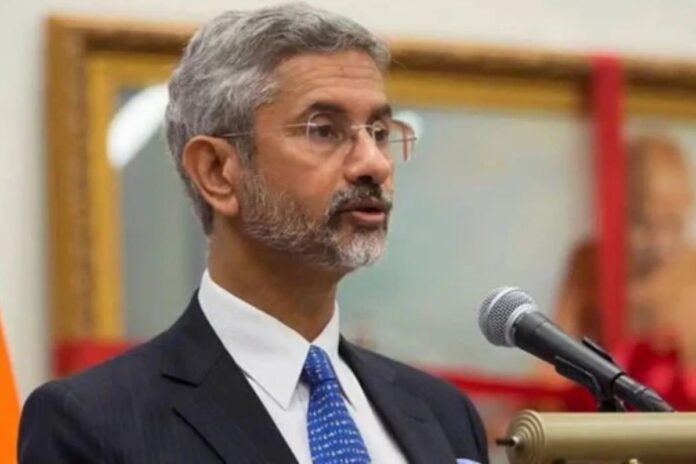External Affairs Minister S. Jaishankar recently addressed the Rajya Sabha regarding the latest developments in India-China relations, specifically highlighting the progress made in troop disengagement in Eastern Ladakh. Speaking about the friction points that arose between the two countries in 2020, Jaishankar provided insights into the de-escalation process and hinted at the steps ahead to secure peace and stability along the Line of Actual Control (LAC).
Jaishankar stated, “The disengagement has now been achieved in full in Eastern Ladakh through a step-by-step process, culminating in Depsang and Demchok.” Referring to areas such as the Galwan Valley and Pangong Tso, where disengagement was reached two years ago, he elaborated on how temporary buffer zones were created to ease tensions. Jaishankar emphasised that these actions were taken in response to local conditions to prevent further friction, and that they applied to both sides equally. He noted, “This, I must stress, applies to both sides and can be revisited as the situation demands. In that sense, our stance has been resolute and firm and serves our national security fully.”
Despite Jaishankar’s detailed address, his statement was met with some resistance from opposition members in the Rajya Sabha. Following the minister’s remarks, several Opposition MPs sought clarifications, leading to a brief uproar in the House. However, Chairman Jagdeep Dhankhar disallowed the requests, reminding the members of the importance of upholding the dignity of the House. “Time and again, I have invited your attention, indulgence, that we are being watched by the entire nation and our demeanour is causing a serious dilution of the institution,” Dhankhar said, urging the members to maintain decorum.
The de-escalation achieved in Eastern Ladakh now paves the way for a more measured bilateral engagement with China, Jaishankar added. He revealed that recent talks with Chinese Foreign Minister Wang Yi had resulted in an understanding to convene special representative and foreign secretary-level mechanisms soon. “The conclusion of the disengagement phase now allows us to consider other aspects of our bilateral engagement in a calibrated manner, keeping our national security interests first and foremost,” he explained.
Jaishankar also highlighted the close cooperation between India’s defense and diplomatic sectors during negotiations with China, which ensured that India’s national interests were safeguarded. He pointed to the significant improvements in border infrastructure that have allowed India to effectively deploy forces in the region. “The Border Roads Organisation (BRO) alone has incurred three times the expenditure level of what it was a decade ago,” Jaishankar noted. He added that the increase in the length of road networks, the number of bridges, and tunnels had greatly enhanced India’s capacity to respond to any border incidents.
The minister reiterated India’s firm stance on three key principles in managing relations with China: both sides must strictly respect the Line of Actual Control (LAC), neither side should attempt to unilaterally change the status quo, and all previous agreements must be fully honored. “Both sides should strictly respect and observe the Line of Actual Control (LAC), neither side should attempt to unilaterally alter the status quo, and agreements and understandings reached in the past must be fully abided by in their entirety,” he explained.
Touching upon the broader implications of the recent border tensions, Jaishankar noted that the India-China relationship, which had been advancing in several domains, was negatively impacted by these events. He emphasised that peace and tranquility along the border are essential prerequisites for any positive growth in bilateral ties. “Our relationship had progressed in many domains, but was obviously negatively affected by recent events. We are clear that the maintenance of peace and tranquility in border areas is a prerequisite for the development of our ties,” he said.
Looking ahead, Jaishankar indicated that the upcoming talks would not only focus on de-escalation but also address the effective management of activities in the border areas to prevent further incidents. “In the coming days, we will be discussing both de-escalation as well as effective management of our activities in the border areas,” he said, signaling India’s commitment to resolving disputes diplomatically while ensuring national security.
The recent statements by Jaishankar reflect a cautious optimism in India-China relations. While progress has been made on disengagement in Eastern Ladakh, much remains to be done in terms of rebuilding trust and ensuring long-term peace. The continued dialogue and cooperation between defense and diplomatic officials highlight the government’s focus on safeguarding national interests while exploring avenues for improved relations with its neighbor.

